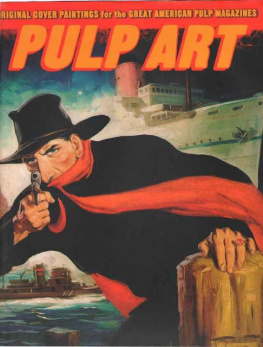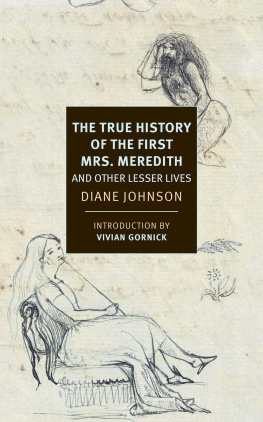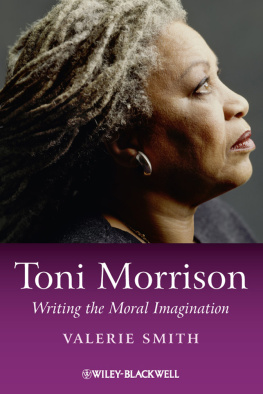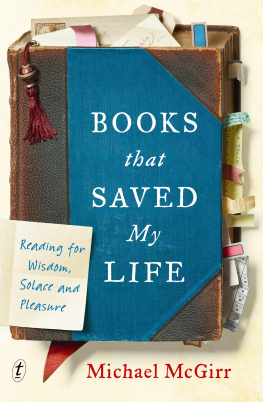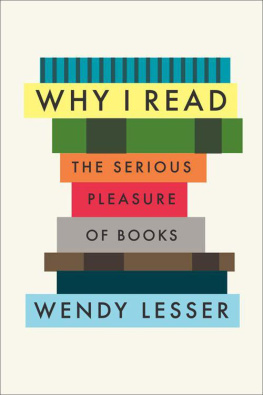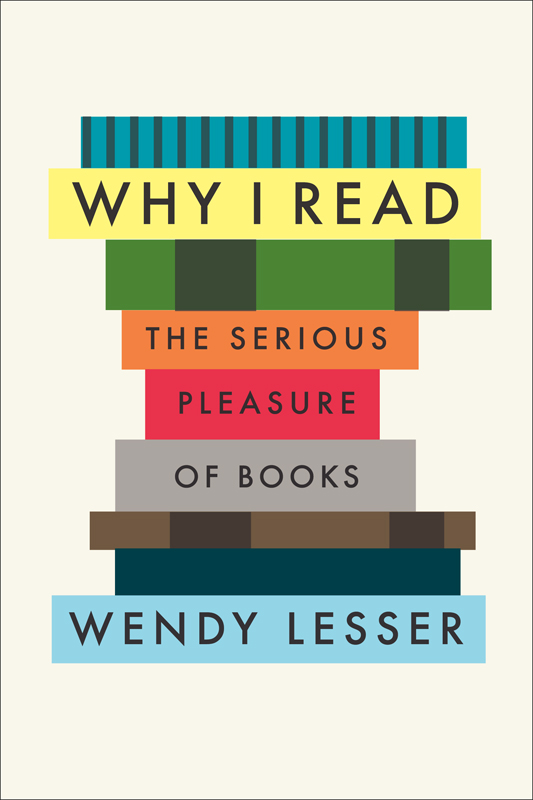
The author and publisher have provided this e-book to you for your personal use only. You may not make this e-book publicly available in any way. Copyright infringement is against the law. If you believe the copy of this e-book you are reading infringes on the authors copyright, please notify the publisher at: us.macmillanusa.com/piracy.
For Tim and Anne
It is art that makes life, makes interest, makes importance, for our consideration and application of these things, and I know of no substitute whatever for the force and beauty of its process.
Henry James, letter to H. G. Wells
So long as I remain alive and well I shall continue to feel strongly about prose style, to love the surface of the earth, and to take pleasure in solid objects and scraps of useless information. It is no use trying to suppress that side of myself. The job is to reconcile my ingrained likes and dislikes with the essentially public, non-individual activities that this age forces on all of us.
George Orwell, Why I Write
At least, thought Amalfitano, Ive read thousands of books. At least Ive become acquainted with the Poets and read the Novels. (The Poets, in Amalfitanos view, were those beings who flashed like lightning bolts, and the Novels were the stories that sprang from Don Quixote .) At least Ive read. At least I can still read, he said to himself, at once dubious and hopeful.
Roberto Bolao, Woes of the True Policeman
CONTENTS
PROLOGUE: WHY I READ
Its not a question I can completely answer. There are abundant reasons, some of them worse than others and many of them mutually contradictory. To pass the time. To savor the existence of time. To escape from myself into someone elses world. To find myself in someone elses words. To exercise my critical capacities. To flee from the need for rational explanations.
And even the obvious reasons may not be the real ones. My motives remain obscure to me because reading is, to a certain extent, a compulsion. As with all compulsions, its sources prefer to stay hidden.
In any case, when I ask myself why I read literature, I am not really asking about motivation. I am asking what I get from it: what delights I have received over the years, what rewards I can expect to glean. This I am sure of. The rewards are enormous. But they too tend toward the intangible, and sometimes the inexpressible. I have tried to express some of them here, but without any hope of being all-encompassing. Partial coveragea flashlight shining into a dark room, briefly illuminating what sits on the rows of shelvesis all I can realistically aim for.
When it comes to literature, we are all groping in the dark, even the writer. Especially the writer. And that is a good thingmaybe one of the best things about literature. Its always an adventure of some kind. Even the second or third or tenth time you read it, a book can surprise you, and to discover a new writer you love is like discovering a whole new country. Some countries, like the novels of Nathanael West or J. G. Farrell or E. M. Forster, are only the size of a small island, because their author died young or dried up early. Others, like the novels of Anthony Trollope or mile Zola, seem to cover a whole continent, requiring years just to map out and superficially explore. One kind of land mass is not better than another (though they do tend to appeal to different tastes), and whichever you prefer, there are always more out there. You will never reach the end.
I suppose if I had to give a one-word answer to the question of why I read, that word would be pleasure. The kind of pleasure you can get from reading is like no other in the world. People even get pleasure out of reading bad books, and I deplore this, but that is only because those books are not to my taste. You will deplore some of the works I hold up as models in this book, and that is not only sensible, but inevitable. Because reading is such an individual act, the pleasures we derive from literatureeven which books we are willing to call literaturewill not be identical. That is as it should be. Reading can result in boredom or transcendence, rage or enthusiasm, depression or hilarity, empathy or contempt, depending on who you are and what the book is and how your life is shaping up at the moment you encounter it. This effect will be particular to each person, and it will change over time, just as the person changes over timeand the richer and more complicated the book is, the more this will be true.
I have tried, in this book, to cast a wide net in my definition of literature, looking at plays, poems, and essays as well as novels and stories. Along with more traditional literary forms, I have included mysteries and science fiction, memoirs and journalism, the only requirement being that the book be well-written enough to last through multiple readings, not to mention multiple generations of readers. With my contemporaries, of course, I have had to guess at this: I possess no magical powers that enable me to see the literary future.
I do, however, have a time-travel machine of sorts, in the form of the literature of the past. Just about everything I know about nineteenth-century England comes out of novels. Ditto for nineteenth-century Russia, late-nineteenth-century France, and twentieth-century India. Those fictional images and experiences are now so much a part of my own mind that superimposed reality pales by comparison. Jane Austens Bath is more present to me than the tourist-laden city I have actually visited, and Gogols Nevsky Prospect is more memorable than the mundane boulevard I saw when I finally got to St. Petersburg. I will never experience Bombay from the viewpoint of its slums, as Rohinton Mistry allows me to do; I will never feel at home in the actual Paris the way I do in the Paris of Balzac, Zola, or Proust. And even certain parts of AmericaWilliam Faulkners South, Willa Cathers Southwest, Ross Macdonalds Southern Californiaare more familiar to me in their literary form than they are as geographical entities I have or might set foot in.
Does this mean I am in retreat from reality? I dont think soor not, anyway, more than the average person who sits at a computer screen, or watches television, or consumes daily newspapers and weekly magazines. We all live much of our lives at one remove. Perhaps this has always been true, but at the present moment it seems more true than ever. One is tempted to blame technology for this: the internet, social media, email. But there is no doing without these things, now that they have arrived, and there is no point in just being resistant. We must live in this world.
I live in it with, and through, literature. That, I suppose, is what I am hoping to transmitthat sense of connection with something other than oneself and ones friends and ones life in this time. Reading literature is a way of reaching back to something bigger and older and different. It can give you the feeling that you belong to the past as well as the present, and it can help you realize that your present will someday be someone elses past. This may be disheartening, but it can also be strangely consoling at times.
And if the sense of connection we get through literature is an illusory one, how is that any different from most of the kinds of connection we feel these days? Reading has, at any rate, the virtue of being one-to-one. Its just you and the book, enclosed within a private space; in some ways that means its just you, alone with an inert object that you are temporarily bringing to life. So within and beside that palpable sense of connection, that awareness of a vast community of readers and writers stretching backward and forward through time, lies something that seems paradoxically at odds with it: that is, a firm, resilient feeling of detachment. Nothing takes you out of yourself the way a good book does, but at the same time nothing makes you more aware of yourself as a solitary creature, possessing your own particular tastes, memories, associations, beliefs. Even as it fully engages you with another mind (or maybe many other minds, if you count the characters as well as the authors), reading remains a highly individual act. No one will ever do it precisely the way you do.



